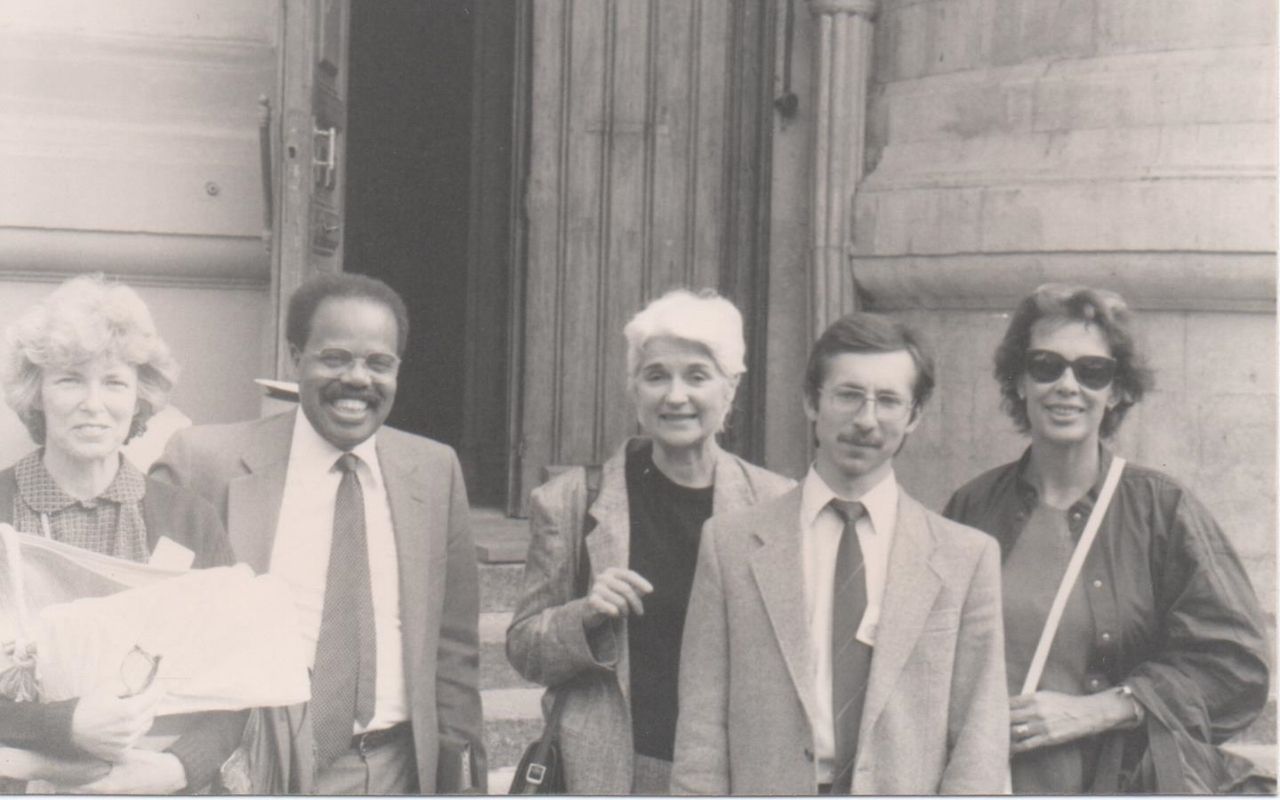Frances – Sissy – Farenthold was a shy woman who lived a big life. She was thoughtful, with steel in her spine. So somber that Molly Ivins called her a “melancholy rebel,” she had a constant twinkle in her eye.
The span of her career is breathtaking. One of eight women in a class of 295 graduates from the University of Texas Law School. Head of a county legal aid program. Elected in 1968 to become the only woman in the Texas House of Representatives – where she joined with Barbara Jordan to lead passage of the Equal Rights Amendment in Texas.
Populist candidate for Governor, defeating the incumbent Governor and Lieutenant Governor along the way. Nominee for Vice President in the 1972 McGovern Convention. First National Chair of the National Women’s Political Caucus, Professor at law schools, President of Wells College, leader of Helsinki Watch Committee, global activist on women’s rights, disarmament, and human rights.
She was a leader in the populist thrust that still redeems Texas politics, the Texas of Molly Ivins, Ann Richards, Jim Hightower, Bernard and Audre Rapoport and more. In the early 1970s, as a member of the Texas House, she fought Big Oil, exposed the corruption of Democratic leaders, championed women’s rights and worker’s rights and the rights of the poor. She was the sole vote against a resolution praising the Lyndon Johnson administration for its conduct of the Vietnam War.
Her run for governor featured a campaign commercial in which she declared: “Our present state leaders have run Texas like a cash register. The governor profits from the Sharpstown stock swindle. The lieutenant government makes a fortune on private deals with special interests. Another candidate is a banker who is a back-up man for big business interests. It’s time to take Texas from the special interests.” In the primary, she beat the incumbent governor, the lieutenant governor Ben Barnes who was Lyndon Johnson’s candidate and won 45 percent of the vote in the runoff. And this from a political candidate who, as her biographer Thomas Cohen writes, didn’t particularly like public speaking.
Her life wasn’t a bed of roses. As it too often does, life battered Sissy but she battered it right back.
As director of IPS in the 1980s, I had the pleasure of working with Sissy when she joined the Institute Board in 1983 and became its chair in 1986. She was an active and proud board member, representing IPS across the world.
She always believed in the power of ideas and in the possibility of straight talk. She happily accepted the invitation to join the IPS Board when Reagan was president, and IPS was under relentless assault from the lunatics of the far right. She said she was proud to stand with the public scholars who had opposed the Vietnam War, decried the nuclear arms race, and led the effort to end the Central American Wars.
When Gorbachev took power in the USSR, Sissy joined the IPS delegation that traveled to Moscow to share unconventional ideas about disarmament with leading experts in the Soviet Union. She took an active role in the delegation that traveled to Havana and met with Castro to discuss new ideas on how to end the embargo.
In 1986, she became chair of the Board of IPS, and assumed – with admitted reluctance – her share of the heavy lifting needed to raise the support to build it. She ever teased me for abandoning her when I left to join the 1988 Jackson campaign, but she worked to keep IPS afloat through the transition.
Sissy’s resume displays her will, her intelligence and her remarkable energy. What it doesn’t reveal is her warmth, her generosity, and her empathy. She was not only the chair of the IPS board; she was my friend. And she will be missed.
